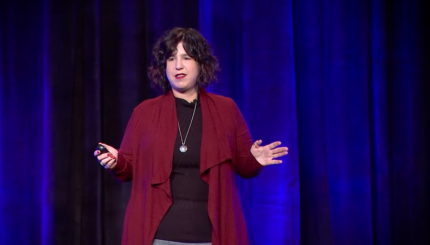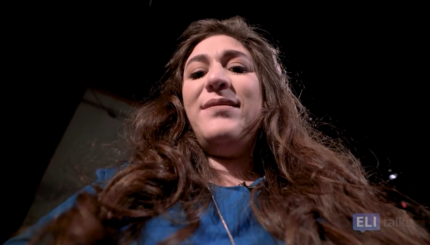The Talmud says that the first fulfillment of the commandment to visit the sick, or bikkur cholim in Hebrew, is in the book of Genesis, when God comes to visit Abraham after his circumcision. Abraham was 99 years old when he circumcised himself and he was in considerable pain three days later when God paid him a visit.
What does God do when he visits Abraham? The text tells us only that God “appeared” to him. No comforting phrase is uttered, no wise teaching is shared — God simply appears. Which suggests to us that the central element of supporting those who are not well is just showing up — being there, fully present, along with the person in pain. The text validates the pain of feeling alone at a time of sickness and reminds us of the difference that can be made by the compassionate presence of another.
Of course, this isn’t always possible. Sometimes we are separated from those we wish to support by geography or other circumstances. At such times, it’s incumbent upon us to find other ways to show up, even if it’s not in person. Whether through social media, video conference, or plain old-fashioned phone calls, there are many ways we can create a sense of presence even without being in the same room with someone.
But there’s something more we can do as well, which is suggested later in the text. The story continues that after God’s visit, Abraham receives three more visitors, who our tradition understands to be angels, messengers of God. Jewish tradition teaches that angels are created for one singular purpose. But these angels seem to have accomplished multiple missions, visiting the sick and bringing a message to Abraham about the pending destruction of Sodom, where his nephew Lot lived, and then going to warn Lot.
With your help, My Jewish Learning can provide endless opportunities for learning, connection and discovery.
The rabbis wonder: How can one angel have engaged in two separate missions? One answer is that seeking the welfare of Lot was part and parcel of visiting Abraham while he was sick. That is to say, part of alleviating Abraham’s pain was communicating to him not only that he was cared for, but that his nephew was as well.
Often we think that the mitzvah of bikkur cholim applies only to the patient. But illness often results in tremendous stress on an entire family. As lovely as it is to provide support for a patient, it can also be incredibly beneficial to the patient to offer support to their loved ones as well. Bikkur cholim can thus be fulfilled without even stepping foot in a patient’s room.
We learn from this story that to help those who are unwell is truly to walk in the ways of God, whether by finding ways to be present even when we can’t be in person or showing support to a patient’s family and larger social network. Sometimes it takes a little creativity to figure out the best way to do this. But thankfully our tradition provides us with the encouragement and models that can guide us in our pursuit of being a blessing to the world around us, no matter what struggles arise and no matter how unique and challenging the situation becomes.
mitzvah
Pronounced: MITZ-vuh or meetz-VAH, Origin: Hebrew, commandment, also used to mean good deed.
Talmud
Pronounced: TALL-mud, Origin: Hebrew, the set of teachings and commentaries on the Torah that form the basis for Jewish law. Comprised of the Mishnah and the Gemara, it contains the opinions of thousands of rabbis from different periods in Jewish history.



